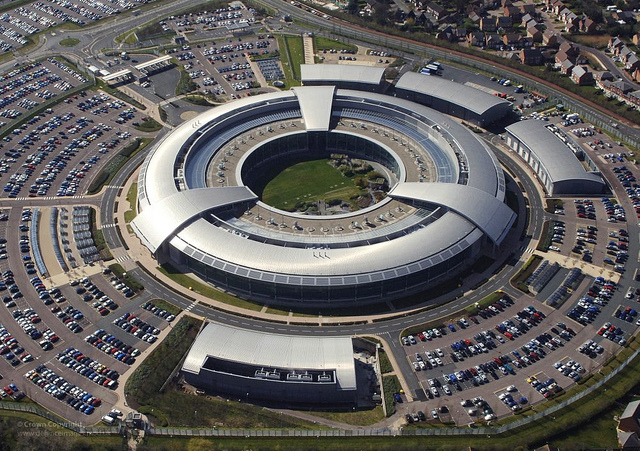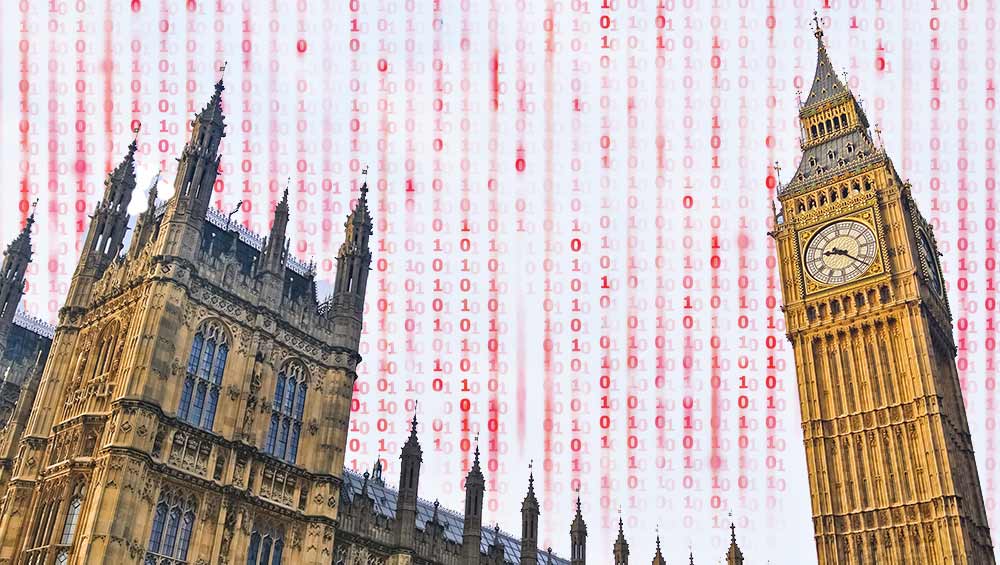Government 'must be held to account' over illegal Snooper's Charter
Gov should be given until April to make changes to the Investigatory Powers Act, court told

The High Court has been urged to give MPs until July 2018 to rewrite sections of the Investigatory Powers Act after they were deemed "incompatible" with European law.
Powers that forced communication companies to collect and store data on the UK population, including phone records and internet activity, were ruled illegal in January as they granted spy agencies access to user data for purposes other than fighting crime, and without court approval.
Digital rights group Liberty argued that ministers had been exercising these powers in the 14 months since the introduction of the Investigatory Powers Act (IPA), and has now demanded that they urgently rewrite the laws to comply with European legislation, as reported by the News & Star newspaper.
Barrister Martin Chamberlain told the High Court on Tuesday that the government should be given a deadline of 31 July 2018 to change the laws around data retention in order to provide an "effective remedy", at which point groups such as Liberty could then seek further court action.
However, the government argued that the "vast majority" of the collected data would never be accessed by the government as most cases don't pertain to any criminal investigation.
James Eadie QC, representing the government, said that it had already proposed amendments to the IPA in November last year, though there have yet to be any legislative changes, despite the ruling in January.
He also argued that as the government has already begun the process of making changes, it should be given until April 2019 to allow it time to agree to new laws and introduce a "fully independent authorisation regime".
Get the ITPro daily newsletter
Sign up today and you will receive a free copy of our Future Focus 2025 report - the leading guidance on AI, cybersecurity and other IT challenges as per 700+ senior executives
January's ruling ended a long-running case brought against the government by Labour's Tom Watson in 2014, which argued that sections of the Data Retention and Investigatory Powers Act (DRIPA) were unlawful. Those same sections were translated to the Investigatory Powers Act when DRIPA expired in 2016 and as such it has now been argued that the government needs to rewrite those provisions to comply with the EU.
Speaking before Tuesday's hearing, Liberty director Martha Spurrier said: "Our message to the Government is straightforward you're not above the law. Stop ignoring the courts, stop knowingly violating people's rights and get on with building a targeted surveillance system that protects our safety, our cybersecurity and our rights."
30/01/2018: Court rules that UK's digital surveillance powers are illegal
The UK government's broad digital surveillance tactics, first defined under old legislation, are unlawful, judges ruled today.
The ruling concerns a legal challenge brought by Labour MP Tom Watson against the government's defunct Data Retention and Investigatory Powers Act (DRIPA) legislation that set out mass surveillance laws in 2014.
Judges unanimously found that section one of DRIPA was inconsistent with EU law because it granted spy agencies and law enforcement access to UK citizens' phone records and internet activity for purposes other than fighting serious crime, without seeking or getting approval from a court or independent authority.
DRIPA forced communications companies to store detailed information on people's mobile phone data, as well as their emails, texts and internet communications.
The Investigatory Powers Act (also known as the 'Snooper's Charter') replaced DRIPA when it expired at the end of 2016, and effectively incorporated the DRIPA legislation amid other measures. Consequently, Watson said the government will need to make changes to this legislation as well to comply with the appeal court's ruling.
Watson, who first brought his challenge to DRIPA in 2014, said: "This legislation was flawed from the start. It was rushed through Parliament just before recess without proper parliamentary scrutiny.
"The government must now bring forward changes to the Investigatory Powers Act to ensure that hundreds of thousands of people, many of whom are innocent victims or witnesses to crime, are protected by a system of independent approval for access to communications data."
Martha Spurrier, director of digital rights group Liberty, which represented Watson, added: "This judgement tells ministers in crystal clear terms that they are breaching the public's human rights. The latest incarnation of the Snooper's Charter, the Investigatory Powers Act, must be changed."
The government opened a consultation on the Investigatory Powers Act in November last year, admitting that independent oversight is necessary, and proposing safeguards around data retention.
However, this consultation also rejected the accusation that its data retention regime is "general and indiscriminate".
Open Rights Group Scotland director Matthew Rice said: "The Investigatory Powers Act carves a gaping hole in the public's rights: public bodies able to access data without proper oversight, and access to that data for reasons other than fighting serious crime.
"These practices must stop, the courts have now confirmed it. The ball is firmly in the government's court to set it right."
Security minister Ben Wallace said in a statement emailed to IT Pro: "Communications data is used in the vast majority of serious and organised crime prosecutions and has been used in every major Security Service counter-terrorism investigation over the last decade. It is often the only way to identify paedophiles involved in online child abuse as it can be used to find where and when these horrendous crimes have taken place.
"This judgment relates to legislation which is no longer in force and, crucially, today's judgement does not change the way in which law enforcement agencies can detect and disrupt crimes.
"We had already announced that we would be amending the Investigatory Powers Act to address the two areas in which the Court of Appeal has found against the previous data retention regime. We welcome the fact that the Court of Appeal ruling does not undermine the regime and we will continue to defend these vital powers, which Parliament agreed were necessary in 2016, in ongoing litigation."
Today's decision comes after Watson won his initial High Court challenge in 2015.
When the government appealed the Court of Appeal referred the case to the European Court of Justice, which upheld the High Court's decision, and set out safeguards the government must introduce in the Investigatory Powers Act, which critics claim aren't reflected in the government's consultation.
Liberty is challenging Investigatory Powers' mass surveillance regime in a separate case after crowdfunding a 50,000 legal fund.
Pictur courtesy of Defence Images
Dale Walker is a contributor specializing in cybersecurity, data protection, and IT regulations. He was the former managing editor at ITPro, as well as its sibling sites CloudPro and ChannelPro. He spent a number of years reporting for ITPro from numerous domestic and international events, including IBM, Red Hat, Google, and has been a regular reporter for Microsoft's various yearly showcases, including Ignite.
-
 Bigger salaries, more burnout: Is the CISO role in crisis?
Bigger salaries, more burnout: Is the CISO role in crisis?In-depth CISOs are more stressed than ever before – but why is this and what can be done?
By Kate O'Flaherty Published
-
 Cheap cyber crime kits can be bought on the dark web for less than $25
Cheap cyber crime kits can be bought on the dark web for less than $25News Research from NordVPN shows phishing kits are now widely available on the dark web and via messaging apps like Telegram, and are often selling for less than $25.
By Emma Woollacott Published
-
 UK faces challenges to bulk spying in European Court of Human Rights
UK faces challenges to bulk spying in European Court of Human RightsNews Privacy groups argue bulk data collection breaches Article 8 in landmark court case
By Dale Walker Published
-
 Liberty wins right to challenge Snooper’s Charter
Liberty wins right to challenge Snooper’s CharterNews Campaign group's crowdfunded challenge gets High Court go-ahead
By Rene Millman Published
-
 The government needs to abandon its war on WhatsApp
The government needs to abandon its war on WhatsAppOpinion Encryption might seem like an easy target, but mess with it at your peril
By Adam Shepherd Published
-
 “Deeply misguided”: tech industry rejects Rudd’s attack on encryption
“Deeply misguided”: tech industry rejects Rudd’s attack on encryptionAnalysis Experts warn that banning encryption leaves UK open to hackers
By Adam Shepherd Published
-
 The fight against the Investigatory Powers Bill isn't over yet
The fight against the Investigatory Powers Bill isn't over yetOpinion The Snooper's Charter may have been struck down - but it will be back
By Adam Shepherd Published
-
 Investigatory Powers Bill passes through Parliament
Investigatory Powers Bill passes through ParliamentNews Now only Royal Assent is required to enshrine Snooper's Charter in UK law
By Joe Curtis Published
-
 GCHQ, MI5 and MI6 "unlawfully" collected data for over a decade
GCHQ, MI5 and MI6 "unlawfully" collected data for over a decadeNews Tribunal rules GCHQ, MI5 and MI6 surveillance breached Article 8 of the ECHR
By Dale Walker Published
-
 Brits fear Snooper's Charter powers that already exist
Brits fear Snooper's Charter powers that already existNews General public unaware of existing police powers to spy on the public
By Jane McCallion Published